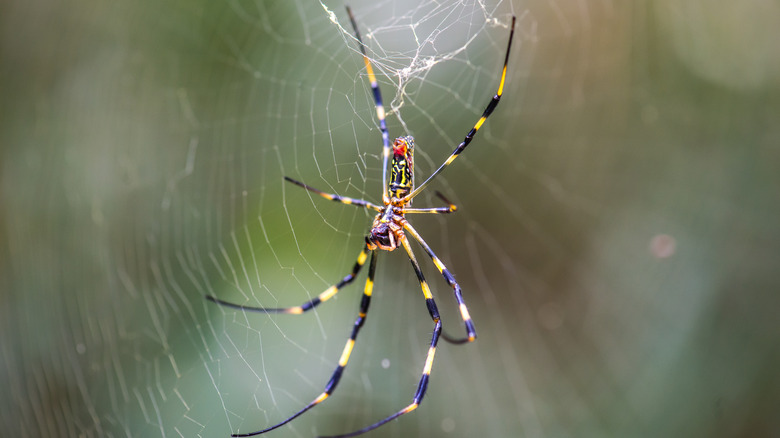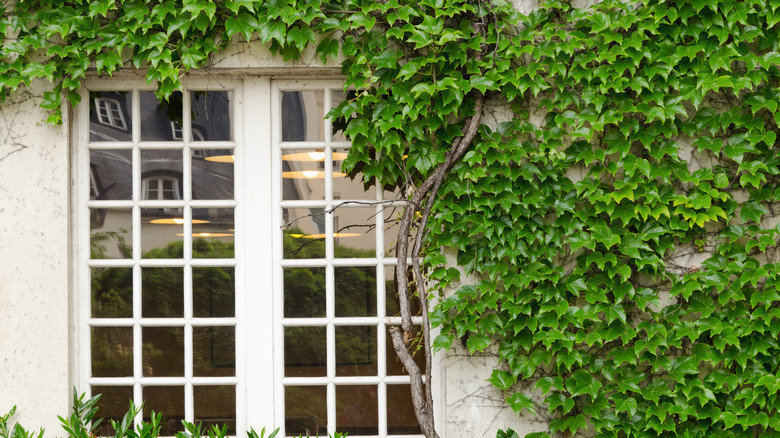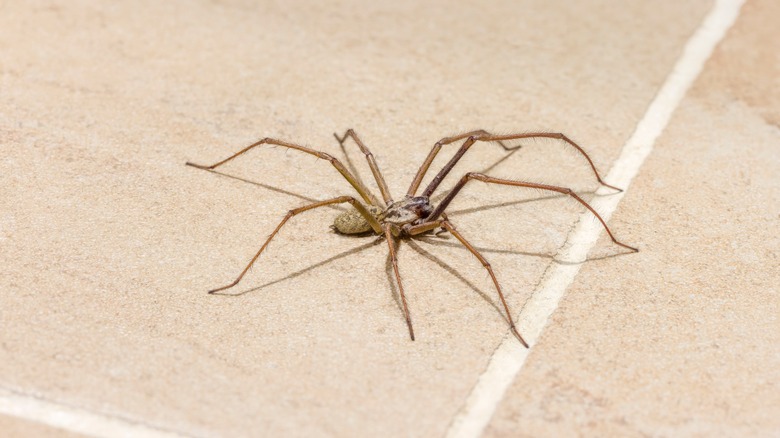Avoid Planting This Spider-Attracting Plant Near Your Home
While most spiders are harmless — or even helpful – in the garden, that doesn't mean you should welcome them inside. Some species found in the U.S. pose a serious risk to humans, such as the brown recluse and the infamous black widow. Unfortunately, growing plants within about a foot of your home's foundation can encourage these eight-legged pests to come closer to your house and potentially migrate inside. One of the worst plants for attracting spiders is English ivy (Hedera helix).
As if there weren't already enough issues to know about before growing English ivy, such as its invasiveness in much of North America and its toxicity, it's also a spider magnet. Thanks to its dense foliage full of shady hiding spots, English ivy is a go-to plant for spiders looking for a quiet area to build webs and hunt. Removing this ivy from your yard, especially near your home, not only helps protect native species from the invasive plant, but also helps keep your home spider-free.
Removing ivy
English ivy is hardy in zones 4 through 13, and thanks to its rapid growth and ability to thrive in a variety of light and soil conditions, it is notoriously difficult to remove once established. This is bad news if you want this spider attracting plant gone. If you have any ivy growing around your yard, you should begin removing it immediately. If you are only dealing with a small amount of ivy, you can try manually pulling it out – just be sure to wear gloves and long sleeves as English ivy is known to cause contact dermatitis (and may also be full of spiders). When pulling ivy, be sure to remove the roots to prevent the plant from resprouting, and avoid composting ivy as it can easily regrow from small sections.
In severe cases, you may need to resort to using herbicides to eliminate ivy. One good method is to cut the ivy back as much as possible and then paint the stump with an herbicide containing triclopyr ester, being sure to follow the product's instructions carefully. You may need to repeat this process before the plant finally dies, but once the majority of the leaves and vines are gone, spiders should no longer find the ivy an appealing place to live. If invasive ivy is growing on your trees, you'll need to be especially careful when removing it to avoid causing further harm to the trees.
Additional ways to keep spiders out
In addition to English ivy, there are many other plants you shouldn't grow right next to your house (mostly because they can cause damage to your foundation). So if you really want gardens close to your home, consider opting for low-growing plants that don't have too many dense or shady areas for spiders or insects to hide. You may also want to choose drought-tolerant plants so you won't have to worry about excess water near your home's foundation.
Keeping your house and the area around it clean and relatively free of debris and clutter can also go a long way toward discouraging spiders from visiting. In addition to removing plants like ivy from around your home's foundation, make sure you don't have firewood or other hiding places for spiders near your house, and check for any cracks or gaps around doors that could be providing spiders with a way inside. Common mistakes like having bright exterior lights might also be attracting spiders to your house. Remember that while most spiders are harmless, black widow and brown recluse spiders can be quite dangerous, and if you believe either of these species are in or around your home it is best to work with professionals to safely eradicate them.


